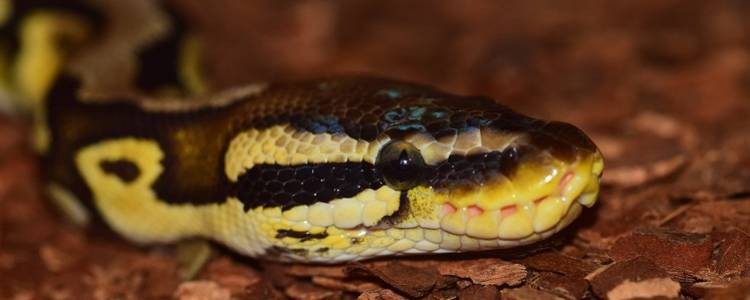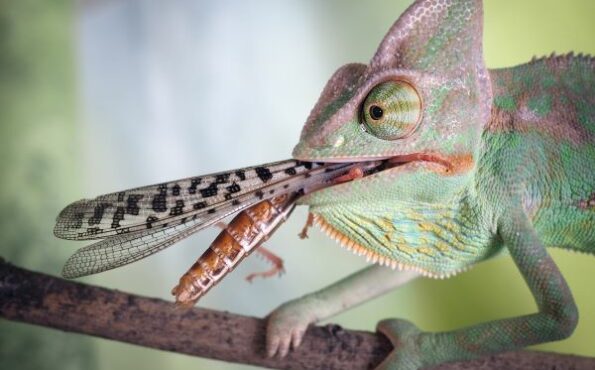David Alderton is the editor of Practical Reptile Keeping. He has extensive practical experience with reptiles and has written and broadcast widely about their care and biology. Originally published in Practical Reptile Keeping, read his article written for ExoticDirect here…
Is your reptile insured? Get a quote for £1,000 of vet fees, death and theft cover. Vet fee cover only also available | We’ve been insuring exotic pets since 1996 | Check out our customer reviews on Feefo.
One of the most difficult issues that can confront a reptile keeper is having a pet that fails to eat. Known technically as anorexia, there can be a wide range of different causes of this condition, and unravelling the likely reason or reasons for such behaviour can often be very difficult. It typically requires the assistance of a veterinary surgeon – ideally one who is experienced with reptiles.
If you’re not yet registered with a reptile vet, you can find details on ExoticDirect’s Find a Vet page.
Reptiles are, of course, ectotherms, and depend on the temperature within their environment to maintain and adjust their levels of activity, including both their appetite and digestion.
Put simply, if the temperature in the reptile’s housing is too low, then not only will the reptile fail to eat, but if this situation persists for any length of time, its immune system will be adversely affected as well. The reptile will then be more vulnerable to infections. Always monitor the temperature in your reptile’s housing, therefore, to ensure the gradient across the enclosure is suitable for your species.
The Northampton Reptile Centre sells a range of a heating products for your enclosure.

You can find out more about the appropriate vivarium temperature for Leopard Gecko’s and Bearded Dragon’s by reading our articles:
Tortoises and stomatitis
In the case of tortoises emerging from hibernation, they are particularly vulnerable to the condition known as stomatitis, which is an infection that often begins in the mouth and can spread down the throat.
This is likely to lead to the tortoise refusing to eat, with the result that its health will deteriorate. The answer in this case, as always, is rapid diagnosis and treatment. The aim has to be to help the tortoise to regain its appetite quickly in warm surroundings, so that its immune system can assist in fighting the infection more effectively.
Find out more about our tortoise insurance or…
Alternatively you can call us on 0345 982 5505
Reptiles and stress
Stress can also play its part in deterring a reptile from eating, especially when the animal is transferred to unfamiliar surroundings. This is why it is very important to provide plenty of retreats in a vivarium, so as to help the reptile settle here.
Seasonal changes and reptiles
Seasonal changes can play a part as well, in depressing a reptile’s appetite. This is particularly true in the case of Ball (Royal) pythons.
A desire to mate or lay can also reduce a reptile’s feeding instincts.
Find out more about our reptile insurance or…
Alternatively you can call us on 0345 982 5505
Reptiles and dehydration
You should always ensure that your reptile has access to enough clean, fresh water. Dehydration is another factor that will have a negative effect on a reptile’s desire to eat.
Reptiles and food size
In terms of food, remember that prey that is too large will usually be ignored by a reptile.
Always err on the side of caution therefore, and only offer small items, relative to the size of your reptile, that can be swallowed easily.
In the case of vertebrate prey such as mice or rats, they must also be thoroughly defrosted and warmed-up as necessary.
Reptile feeding – time of day
Bear in mind also that the time of day when you offer food can also have an impact on whether or not it will be eaten.
Many geckos are crepuscular or even nocturnal, starting to emerge from their hiding places and becoming active at dusk. If you offer them food in the morning therefore, they are likely to have little or no interest in eating at this stage.
Recent cases of reptile anorexia and the costs met by ExoticDirect
| Pet Type | Vet Treatment | Claim Value Met |
| Mediterranean Spur-Thighed tortoise_ | Not eating/lethargic & losing weight_ | £266 |
| Bearded Dragon | Not eating/lethargic; given an X-ray | £177 |
| Ball (Royal) python | Investigate not eating | £72 |
| Bearded Dragon | Inappetance | £188 |
| Horsefield’s tortoise | Anorexia and loss of appetite | £403 |
Reptiles and medical conditions
A variety of causes requiring veterinary treatment can also influence a reptile’s desire to eat. Parasites are commonly responsible for this type of problem, and faecal screening is very important for this reason, enabling appropriate preventive treatment to be given if necessary.
A host of different bacteria, viruses and fungi can also all cause illness in reptiles, leading to loss of appetite. Consult an experienced reptile vet, who can arrange the necessary tests to reach an accurate diagnosis, hopefully followed by effective treatment.
Why not get no obligation quote for your tortoise or reptile?
Alternatively you can call us on 0345 982 5505
Original article first published in Practical Reptile Keeping July 2016. Edition 89. Updated for the ExoticDirect website.

